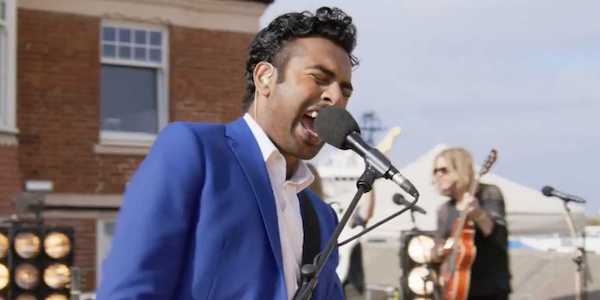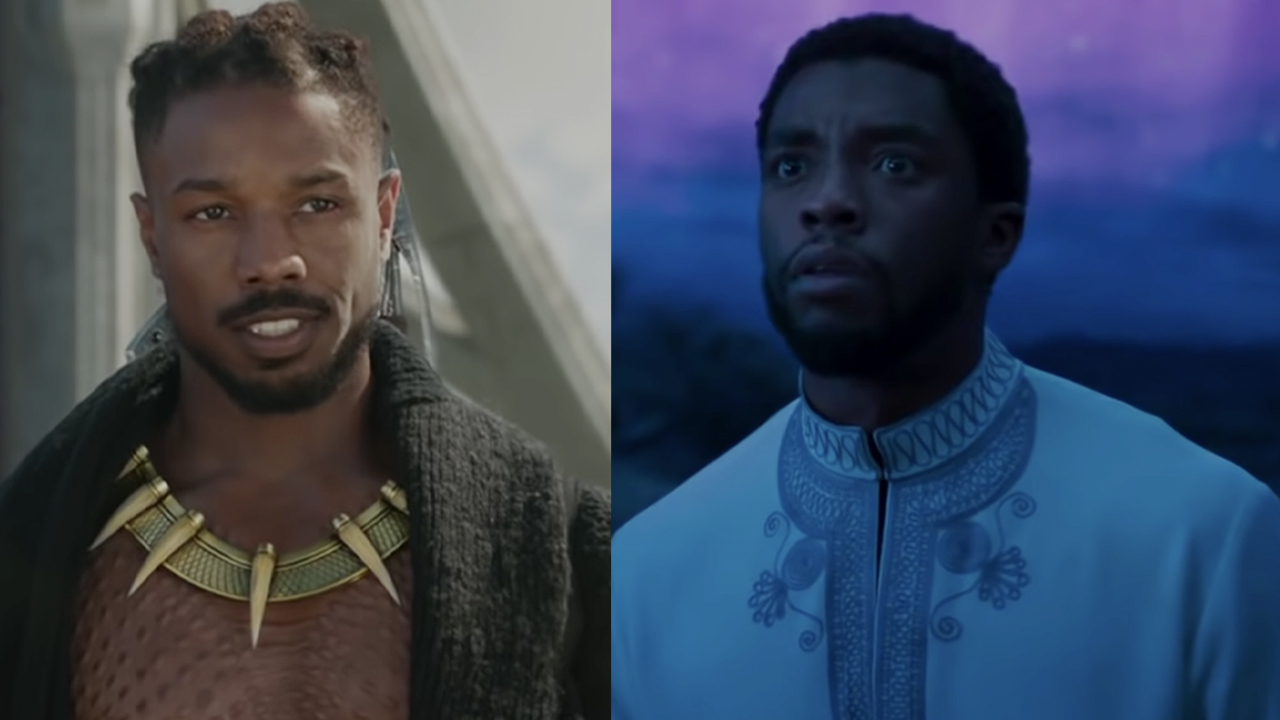Yesterday Director Danny Boyle On The Moviegoing Experiences That Shaped Him

Your Daily Blend of Entertainment News
You are now subscribed
Your newsletter sign-up was successful
Ever since his debut film, Shallow Grave, Danny Boyle has delivered some of the most visceral cinematic experiences of our time. From Trainspotting to Slumdog Millionaire and 127 Hours, his films seamlessly jump from comedy to action to tragedy, and they are impossible to forget. With Yesterday, he proves yet again to be a master of juggling more than one tone in a single film.
I caught up with Danny to discuss the visceral moviegoing experiences that made him the filmmaker he is today.
What’s your earliest moviegoing memory?
I have a twin sister, and I think it was on our 10th birthday that my mom took my sister to see The Sound of Music and my dad took me to see Battle of the Bulge … so there was some terrible gender stereotyping right there. That was the first time I’d ever been in a cinema. It wasn’t a natural part of our lives until we were 10. We didn’t go as young children to see animation or anything like that, so that was my first experience … and obviously it’s an overwhelming, visceral experience that you have. It’s that element of cinema that I respond to more than anything in my taste and the work I try to do with people. I want you to be dazzled and mesmerized by the experience you are going through. I certainly got that from Battle of the Bulge.
Of course, I later caught up with Sound of Music. I met the film’s director Robert Wise—who is one of the great underrated directors—and that was remarkable. I’ll tell you a story about that: we had a screening at the DGA [Directors Guild of America] of the first film I ever made—Shallow Grave—and after the screening and Q&A was over there was an old guy sitting in the back of the auditorium and as I walked out he stopped me and said “Very good, young man. Very, very good.” That was Robert Wise. I didn’t know it at the time, someone told me afterward.
Are there any moviegoing experiences you had as a teenager--or in your twenties—where you walked out at the end and said, “I want to be a director.”
There are three. One is a general one. Where I was brought up there was a mainstream cinema, and in order to get to the art cinema you had to go to the big town, which is Manchester. Outside Manchester there was an art cinema called the ABC in Hulme, and it had four screens—which wasn’t that common at the time in Britain—and they were all showing art movies. I used to go there regularly even though it was quite hard to get to. I didn’t really understand the films because I was 14 or 15, but there was something about them. They played really weird films like El Topo by [Alejandro] Jodorowsky, and a lot of Claude Chabrol films. I read later that the popstar Morrisey would go to that cinema as well.
Your Daily Blend of Entertainment News
The second one was seeing Apocalypse Now in all its majesty. I’ve seen it dozens of times since, and I’ve taken people because I’ve wanted to convince them of its genius. It remains my favorite film of all time. If you talk about a visceral experience that’s the overwhelming example of it. I was very lucky to meet Francis Ford Coppola. I’ve met some famous people in Britain—the Queen and people like that—and I never really got nervous about meeting those people, but when I met Coppola I was like jelly on the floor. I was an embarrassment. I was in my 50s, but I was a quivering teenage child again.
The final one is a Nic Roeg film called Eureka. It’s a film he made with Gene Hackman, who gives his greatest performance in it. The studio released it for only week in one cinema in Britain. I went to see it at a cinema in North London—the only place you could see it—and that film electrified me. Again, it had that visceral nature. In the first half of the film [Gene Hackman’s character] discovers literally liquid gold in Alaska, and he becomes the richest man in the world … the man who has everything. The moral dilemma of the film is: When you have everything, what can you want? I was so affected by the film, and I went back the next week to see it and it had gone. I was really upset. I’ve managed to get it on DVD since and if any theaters ever show it that would be great.
Speaking of Apocalypse Now, it’s going to be back in theaters for its 40th Anniversary. Will you try and see it again?
I’ll be there! I know [Coppola] has slightly recut it. I’ve seen the Redux and I’ve seen the five-hour version. I’ll watch every single version of it there is. As I’m promoting Yesterday, people are asking, “If there was one thing that disappeared and you had the chance to remake it, what would it be?” It would be Apocalypse Now.
I’d like to see your version of Apocalypse Now.
It would be shot-for-shot like the Pyscho remake! I can remember every shot. I wouldn’t imagine that I could improve on it, so I’d just have to make it exactly as Mr. Coppola made it.
Moving to Yesterday: what did you take away from watching the film with a crowd at the Tribeca Film Festival premiere?
The warmth of the communal enjoyment of a comedy … with any film you do, if there’s comedy and you have a crowd that’s enjoying it there’s something wonderful about that communal moment which is very special in cinema. You don’t get it anywhere else. Sometimes you get it with soccer.
The communal experience is very special, and we have to be careful we don’t lose that. Because it’s one of those things that when it’s gone it might not come back again. It’s really special, and people sometimes don’t value it enough. They enjoy it at the moment, but when they think about going to the cinema they might say “Oh, I have to go out to the cinema, and I’m feeling tired,” but when you get there and you have a great time with a lot of people it’s very special.
I remember seeing Dumb and Dumber in a full cinema, and when his tongue gets stuck I was rolling in the aisle laughing. And you can do that because everybody’s a stranger and you can release like that and have a group sensation.
Let’s talk about the industry a bit. Right now there’s a debate going on that says the rise of streaming has to come at the expense of cinema. But the directors that I talk to believe the two can peacefully co-exist. Do you agree that they can?
I think we have to hope there will be. We—and by we I mean those who love cinema above all forms— are vulnerable at the moment. Long-form television, or streaming, is obviously in the ascendancy. There’s a lot of money in it and a lot of people are moving into it. For me—and I’m not speaking against long-form television because it’s very important it doesn’t become adversarial—cinema is unique because of the contract of time you have with the audience and what you are allowed to do in that very precious, exclusive time. Somebody buys a ticket and they give you two hours of their time, and what’s extraordinary about it is they give it to you exclusively. It’s very rare that they’ll leave—you have to be doing a really bad job or there has to be an emergency—and you don’t do that with long-form television when you watch it at home. Even when you love long-form television, you’re not giving your exclusive time to it. Your peripheral vision is different, and in long-form television the contract is endless. That’s the point: that it just goes on and on into the distance. There’s the joke that it’s a bit like getting married: you don’t quite know what’s going to happen down the line, but you sort of sign up for it. Then people joke that everybody knows Season 6 is going to be pretty poor, but you go along with it anyway because the finale might be good. I think in film it’s different. The uniqueness of film is that because of that undivided, exclusive time you get, you can experiment with time. That’s what cinema does more than any other art form. That’s what you learn working in it: you are changing, compressing, and interrupting time. You can stop time in a way that’s so powerful when it’s used right in cinema. That gives you an almost God-like power for a couple of hours. Obviously it’s an illusion, but we want that illusion that we have power over our own destiny. Cinema can introduce you—in what is apparent real time—to a miracle and say, “There, it’s every day. It’s simple and plain and it’s right in front of you, and now it’s gone.” You don’t get that in any other art form, and it’s been a privilege for me to learn that. As long-form television explodes and becomes more prevalent in people’s lives, it makes me realize more and more how precious those moments of time are for us in cinema, and we should protect them for as long as we can.

Sean O’Connell is a journalist and CinemaBlend’s Managing Editor. Having been with the site since 2011, Sean interviewed myriad directors, actors and producers, and created ReelBlend, which he proudly cohosts with Jake Hamilton and Kevin McCarthy. And he's the author of RELEASE THE SNYDER CUT, the Spider-Man history book WITH GREAT POWER, and an upcoming book about Bruce Willis.
